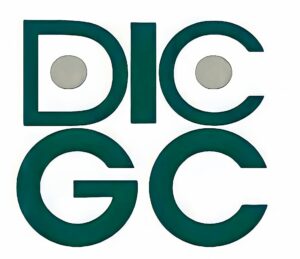Apex Bank is a premier Bank in Agriculture Refinancing and providing short-term credit limits for financing seasonal agricultural operations. The term ‘Seasonal Agricultural Operations’ generally indicates activities, which are undertaken in the process of raising various crops and are seasonally recurring in nature. The credit is provided to meet the current expenditure of raising the crops on land till the crops are harvested.
There are four types of credit limits sanctioned under Seasonal Agricultural operations. 1) Short term – Other crops = ST(OC) 2) Short term – Oil seeds production programme = ST(OPP) 3) Short term – National pulses Development Programme = ST(NPDP) 4) Short term – Development of Tribal population = ST(DTP)
It is the refinance facility provided by the National Bank for Agriculture and Rural Development Bank (NABARD) to the Karnataka State Co-operative Apex Bank on behalf of the eligible DCC Bank. However, Apex Bank is also providing 30% of the NABARD limit to the eligible DCC Banks at NABARD rate of interest from its own resources. The Apex Bank is also providing additional ST (Credit) limit Over & above 30% at the rate of 6.5% to needy DCC Banks and @ 6.00% to Sec. 11 DCC Banks i.e. DCC Banks not eligible for NABARD refinance
The accommodation is provided by NABARD through a three tier Co-operative credit structure viz. the State Co-operative Bank at the State level, the District Central Co-operative Banks at the District level and Primary Agriculture Co-operative Societies at the village level.
NABARD will sanction a consolidated ST (SAO) credit limit to the State Co-operative Bank on behalf of eligible DCC Banks against the DPN executed by the State Co-operative Bank. The credit limit so sanctioned by the NABARD can be drawn by the State Co-operative Banks only in respect of ST agricultural loans already advanced by the concerned DCCB and the SCB.
The credit limits sanctioned for financing SAO are in the nature of cash credit accommodation for one year and operative from Ist April to 31st March. The drawals and repayments under the sanctioned credit limits can be made as many times as required, provided the outstanding in the Account does not exceed the sanctioned credit limits at any point of time.
NABARD to Apex Bank – 3.00% pa
Apex Bank to DCC Bank – 3.65% pa
DCC Bank to PACS – 2.00% pa
PACS to Ultimate borrowers – 4.00% pa
Quantum of refinance linked to gross level NPA of the Bank.
Gross level of NPA Quantum of refinance
Less than 20% 40% of RLP of the Bank
Above 20% 35% of RLP of the Bank
RLP = Realistic Lendable Programme i.e. the crop loans expected to be issued during the year. Average growth in crop loans issued during the previous three years should be the basis for deciding the RLP.
1)Audit for the previous two years should have been completed and relative audit report along with financial Statement should be submitted
2)Compliance with Sec. 11(i) of B.R. Act 1949(AACS).
3)RCS recommendation
4)Linking reform measures to release of flexible refinance component viz (a) Reorganisation of PACS (b) Economy in expenditure (c) Plan to improve recovery performance (d) Review of Staff (e) Issue of crop loans through KCC mode only.
Release of refinance within non-overdue coverage of eligible DCCBs, extending 30% of crop loans to small and marginal farmers, disallowing operation to DCC Banks in case of continuous defaults to SCB, certificate of Reserve Borrowing power.
First of all, a farmer who wants to avail a crop loan should have his own land holdings. He should visit a nearby Primary Agricultural Co-operative Society along with a Registered Tenancy Certificate (RTC) of his/her land holdings and become a Savings Bank Account holder of that PACS/DCC Bank by producing Ration Card or Election Card having full details of the his/her name and address. He should deposit a minimum amount as prescribed by the Bank and then apply for credit facility.
The total credit needs at the farmers level will be worked out with reference to the crop loan system according to the scale of finance for different crops as fixed by the Technical Group Committee each year in the months of December and January. Based on the Scale of finance, the ST credit limit (CLS) should be prepared by the PACS in respect of all its members and submitted to DCC Banks
1.A consolidated ST (Others) credit limit will be sanctioned to State Co-operative Banks on behalf of eligible DCC Banks.
2.ST (Others) credit limit is applicable for agriculture, allied and marketing activities, Marketing of crops, Pisciculture, Industrial Co-operative Societies (Other than Weavers), Labour contract and forest labour Co-operative Societies including collection of Minor forest produce, Rural artisans including Weavers members of PACS/LAMPS/FSS, procurement of agricultural inputs (Fertilizer, seeds etc.).
a)Consolidated ST (Others) limit will be sanctioned depending upon the DCCB-wise Realistic Lending Programme for respective purposes
b)NABARD will provide refinance assistance to State Co-operative Banks at 9.50% per annum.
c)Quantum of refinance will be 60% of RLP for various eligible purposes.
3.ST (Weavers) – (a) A Scheme for financing master weavers.
a)The loan limit for Master Weavers (MW) would depend upon the proposed project and other factors i.e. number of weavers engaged/to be engaged by him, number of looms employed/to be employed, type and quality of cloth produced, connected support services rendered by him including marketing infrastructure etc.
Rate of interest
For working capital limit – 9.50 %
For Term loan – 9.00%
(For Co-operative Banks)
b)A Scheme for financing the working capital requirements of Primary/Apex/Regional Weavers Co-operative Societies.
The important features of the policy are as follows:
i)Eligibility of SCBs/DCCBs for ST-Weavers’ refinance during 2007-08 has been delinked from working result of the Banks.
ii)During the year 2007-08, the quantum of ST Weavers’ credit limit to SCBs/DCCBs would be linked to the gross NPA level of SCB as on 31st March 2006/2007. A consolidated limit will be sanctioned to SCB in respect of eligible DCCBs to the extent of normal eligibility or maximum outstanding refinance availed during 2006-07, depending upon SCB’s NPA percentage.
iii)A relaxation in NPA norms by 5% will be given to banks in North Eastern Region, Sikkim, Jammu & Kashmir and Andaman & Nicobar Islands.
iv)In case of Section 11 Banks, after sanction of credit limit drawals may be allowed, provided exemption application along with Action Plan submitted by the bank reaches NABARD within a period of one month from the date of receipt of NABARD’s Inspection Report and is found acceptable for being forwarded to RBI for favorable consideration.
v)In case of new units, SCB/DCCB may submit an undertaking at the time of drawals that it has not availed working capital refinance for such units under the composite/integrated scheme of NABARD.
vi)In case of default in repayment of loans or any part thereof by SCB within the due dates, the SCB would be liable to pay to NABARD, interest at 1% over and above the maximum interest rate at which refinance is extended by NABARD under any of its activities, at the time of default for the period for which the default persists (Max. refinance rate at present is 9.50% p.a.) Similarly, in case of default in payment of interest by SCB on due dates, the SCB would be liable to pay to NABARD additional interest at maximum interest rate at which refinance is extended by NABARD under any of its activities, at the time of default, on the actual interest remaining unpaid to NABARD.
vii)The rate of interest on refinance for 2007-08 has been fixed at 9.50% and it is subject to revision from time to time.
Medium Term credit limits for conversion of outstanding short-term loans advanced for financing SAO are sanctioned by the NABARD to the State Co-operative Bank on behalf of DCC Bank. Rate of Interest will be the same as applicable to ST agricultural loans that are being converted.






